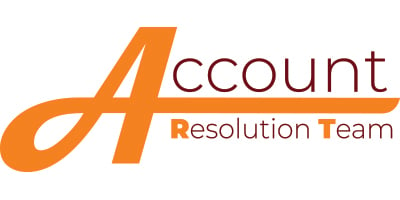Have you ever asked yourself, just what exactly does a debt collection service do and how does it work? Well then, you’re in luck! We’ve outlined the most common topics about how agencies operate, why we need them, to the evolution and future of the debt collection industry.
A professional debt collection service is separate from the original lenders and creditors from whom the consumers are borrowing. They are known as a “third party” service that assumes debt from the creditors once an account has gone delinquent or 60 days without payment or contact. Since debt collection agencies are equipped with specialized software and equipment, they are more suitable and efficient at locating customers to recoup missing funds. Once located, their first job is to contact consumers and send written notice as well as verification of the debt, if requested. Once the debt claim is verified, collectors may proceed in contacting the customers by phone or letter to reclaim full repayment from customers. When a customer is unable to pay back the full sum, debt collection agents must work with the consumer to help them repay a smaller sum. In return for this service, debt collection agencies receive a portion of the payments they recover.
Debt collection services are necessary because their ability to quickly recover debt helps keep consumer prices low as well as prevents businesses from having to fire employees to balance the books. Debt happens, and there is no “typical debtor.” It’s important to remember that this can happen to anyone regardless of their income or background. Debt occurs from a variety of factors including poor money management skills as well as sudden and unforeseen circumstances such as job loss, health issues, or unexpected expenses. So, if the day ever comes that you receive notice from a collection agency, don’t panic. If you’re uncertain the claim is accurate, request verification. Once verified, tackle the problem head-on before it gets worse.
Collection agents are professionals who work on behalf of creditors but are also working to help you get out of debt. They are regulated by the Fair Debt Collection Practices Act (FDCPA) under the Federal Trade Commission (FTC). This means collectors are not allowed to excessively contact, harass, threaten, or use deceptive practices against consumers in any way. However, this federal regulation typically only applies to the third-party collectors we’ve been discussing. “In-house” parties, such as the original creditor, are only regulated by the FDCPA in certain cases.
The face of debt recovery has changed quite a bit in the past 15 years and is anticipated to change even more in the coming years. One of the biggest changes to collection practice has been the automation of tasks that saves time, money, and causes fewer human errors. Currently and on the horizon, there is more emphasis on empowering consumers with their choice of communication. Research has shown that assisting customers with compassion and empathy leads to more responsiveness and positive outcomes. Given this new data, many agencies are giving themselves a facelift on how they contact and communicate with customers through new in-depth training. Along with Regulation F being implemented this year to protect consumers from unfair practices, you can expect to see more tech-driven, customized, and consumer-centric payment solutions as well as greater empathy.
Depend on Account Resolution Team for debt recovery supported by over 70 years of experience. Be sure to follow us on Facebook, LinkedIn, and Twitter and see our other blogs at: www.accountresolutionteam.com

